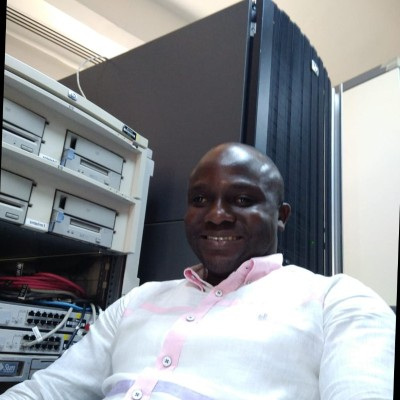
As the cloud networking experts, Aviatrix wants to elevate the work of cloud networking heroes who labor to keep networks secure, effective, and performant. We’re proud to highlight people who have taught themselves the necessary skills, designed and managed successful networks, and have the expertise to share, including several who joined Aviatrix in New York at the NASDAQ tower.
Our next hero spotlight is on Cheikh Tidiane Ndiaye, Senior Information Technology Architect. See our previous hero spotlights here.
Background: Watching the Shift from Face-to-Face to Digital Networking
Cheikh Tidiane Ndiaye is a senior network and telecommunications engineer with more than 12 years of experience in network and radio access network integration, cloud engineering (AWS and Azure) and multicloud (Aviatrix). He specializes in network architecture, Operational Support System, Cloud Engineering, Network Operations Center (NOC), and telecommunications.
Cheikh has watched networking transform significantly in his career, especially with the rise of digital platforms. “Early in my career, networking heavily relied on face-to-face interactions—attending events, joining professional associations, and informal meetups were key. I vividly remember attending local industry conferences where exchanging business cards was the norm,” he said. “Now, digital networking has taken the spotlight. Platforms like LinkedIn have made it easier to connect globally. Instead of just local events, webinars and virtual conferences allow for broader participation. I’ve joined many global forums where I can engage with experts from different continents, something that was nearly impossible before.”
“The Network is the Cloud”: Seamless Integration
When asked what “The Network is the Cloud” means to him, Cheikh said that the statement “emphasizes the seamless integration of networking and cloud computing. To me, it encapsulates how data and services are no longer confined to physical locations but are accessible anytime, anywhere, thanks to interconnected networks.”
Cheikh offered an example: “consider how businesses now leverage cloud-based tools like Google Workspace or Microsoft 365. These platforms allow teams to collaborate in real-time, regardless of geographical barriers. A marketing team in New York can collaborate with designers in Tokyo, all accessing shared files and applications through the cloud—it’s as if the network and the cloud have merged into one fluid entity.”
Cheikh also pointed out how “the network is the cloud” highlights the importance of secure and reliable networking. “As more companies rely on cloud services, having a robust network infrastructure becomes essential,” he said. “It reminds me of the shift many companies made during the pandemic when they transitioned to remote work. The reliance on cloud services for communication, project management, and data storage became a lifeline, proving that the network truly is the backbone of our digital world.”
Networking in the Next 10 Years: Decentralization, Enhancement, and Integration
In the next ten years, Cheikh predicts that cloud networking is likely to evolve in several exciting ways:
- Greater Decentralization — “The rise of edge computing will decentralize data processing. Instead of relying solely on centralized cloud servers, data will be processed closer to where it’s generated. For instance, devices like smart cameras in smart cities will analyze data locally to reduce latency and bandwidth usage.”
- AI-Driven Networking — “AI will play a pivotal role in managing and optimizing cloud networks. Predictive analytics could help identify potential issues before they arise, ensuring smooth operations. For example, an AI could automatically reroute traffic in a network to avoid congestion during peak hours.”
- Enhanced Security — “As cyber threats evolve, so will security measures. We can expect more sophisticated encryption methods and AI-driven security protocols to protect cloud data. Zero-trust architectures, where every access request is verified, will become the norm.”
- Interoperability and Hybrid Solutions — “Businesses will increasingly adopt hybrid cloud solutions, combining public and private clouds. This allows for greater flexibility and control over data while utilizing the scalability of public clouds. For instance, a company might use a private cloud for sensitive data while leveraging a public cloud for less critical applications.”
- Sustainability Initiatives — “Cloud providers will focus more on sustainability, utilizing renewable energy sources and optimizing data centers for energy efficiency. Google and Microsoft, for example, have committed to becoming carbon-negative by 2030, and this trend will likely accelerate.”
Outside of Work
Outside of work, Cheikh loves hiking, exploring local parks, and playing sports by the beach. He also enjoys writing short stories or poetry. “It’s a great outlet for creativity and helps me process thoughts in a unique way,” he said.
Curious about other cloud networking heroes like Cheikh?
- We’ll keep highlighting networking professionals on this blog.
- Learn more about the Cloud Networking Heroes program and apply on The Cloud Network Community.

